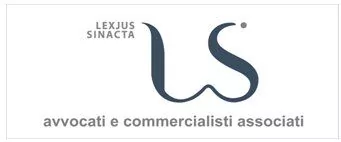The recognition and enforcement of foreign awards in Italy has often proven in the past complex and controversial, since Italian Courts have given Article II(2) of the New York Convention 19581 a narrow interpretation.
Italian Courts have refused the enforcement of foreign awards on the grounds that the applicant had failed to prove that there was a valid and binding arbitration clause, because the contract confirmation had not been signed by both the parties and/or there was no evidence that the broker had valid authorization to conclude the contract and stipulate the arbitration clause.
The position is however gradually changing, and (albeit there are rules of thumb which should be followed when stipulating a contract or drafting arbitration clauses, in order to ensure a smooth enforcement of a successful award) several recent decisions have shown a more flexible and pragmatic approach.
Procedure
The application for the recognition must be filed at the President of the Court of Appeal where the defendant is domiciled (if the defendant is not domiciled in Italy the application must be filed at the Court of Appeal of Rome), along with the documents indicated by article IV of the New York Convention 1958, namely (i) a duly authenticated original award or a duly certified copy thereof, (ii) the original arbitration agreement or a duly certified copy thereof.
The request must be complete from the time of the presentation: the applicant must provide, at the outset, all the relevant documents and certified translations, along with evidence that the award is enforceable.
There is no possibility to integrate the documents in the course of the exequatur proceeding following an appeal by the defendants, and a failure to file a complete set of documents may cause the rejection of the request (although the application could be reiterated enclosing the full set of required documents).
Italian Courts generally do not request the disclosure of an “authenticated original” of the award, and consider sufficient the original signed by the arbitrator(s), but a recent decision of the Supreme Court2 has held that the proper construction and application of the New York Convention implies the disclosure of a “certified” original of the award.
The position is not uncommon, since in several jurisdiction an authenticated original is requested, and may impose in the future some additional care by the applicant in making sure that the original disclosed has been indeed “certified”.
Following the presentation of the application the Court declares the award enforceable ex parte (without the prior appearance of the party against which the enforcement is sought) unless the award is found against public policy, or in the event that the dispute could not be decided by means of an arbitral procedure.
The decree is then served on the defendant, which may raise an appeal within 60 days.
Validity of the arbitration clause
The issues frequently debated in Italian enforcement proceedings are the existence of a valid and binding arbitration clause and the requirement for the arbitration agreement to be in writing pursuant to Article V.1(a) of the NY Convention.
Under Italian case-law the validity of an arbitration clause stipulated by mean of incorporation (i.e. by virtue of a reference to a different standard form) requires the so called “relatio perfecta”, that is to say a specific reference to arbitration.
The issue is particularly relevant in claims and arbitrations arising out of charter parties, where the terms of the contract are frequently summarized in a recap fixture and the arbitration clause is extremely short and synthetic, like “GA/Arb in London engl law to apply”, or the reference to the arbitration clause contained in standard form of charter parties is done by using provisions (very popular with brokers but hardly understood by the Courts) like “arb as per Gencon” or “owise as per Synacomex”.
It is certainly advisable that the intention of the parties to entrust the decision of claims arising from the contract to arbitrators is expressed by words which make clear that the parties have considered arbitration as method of settlement, indicating place and rules of arbitration.
Italian Courts generally hold that a full proper incorporation is needed, and arbitration must be explicitly contemplated by the parties,3 but a few recent decisions have apparently attenuated such a strictness of approach.
The Supreme Court4 (in a matter where the contract contained a reference to the FOSFA arbitration rules) held that the clause was valid even lacking express reference to the arbitration clause, provided that the parties knew or should know about the FOSFA arbitration rules. The position has been confirmed by a further very recent decision of the Supreme Court5 which has stated that that a reference in a contract to standard rules containing an arbitration clause is suitable to give rise to incorporation even if no specific mention of arbitration is made, in light of Article II of the New York Convention, which contains a wide definition of the notion of 'written agreement'.
The Court of Appeal of Florence6 has furthermore stressed that the issue of the validity of the clause must be considered pursuant to the law governing the contract, here again in order to ensure a proper application of the NY Convention.
Breach of due process and public policy
Defenses based on breach of due process are rarely successful, since they require a very serious breach, i.e. the absence of a suitable and proper notice of the proceedings, and the absolute inability (not just an increased difficulty) to present one’s case.
The defense of breach of public policy (Article V.2(b)) is equally limited, but it is worth noting that a decision of the Court of Appeal of Milan7 rejected a few years ago the request of recognition of an award issued under the London Maritime Association Arbitration Rules in a matter where the arbitrator appointed by the claimants had eventually acted and decided as sole arbitrator, as consequence of the defendants’ failure to appoint their arbitrator. The Court of Milan considered that the arbitrator could not ensure sufficient impartiality, and the award was therefore against public policy.
The decision is so far the only precedent having expressed such a view, but suggests nonetheless a certain degree of caution and care during the initial stage of the arbitration.
Conservatory arrest and urgent measures prior to recognition
Italian case-law allows assets in Italy to be preliminarily secured before exequatur proceedings.
Inasmuch as jurisdiction for the exequatur is in the Court of Appeal, the position often expressed by Italian Courts is that an arrest preceding the exequatur should be sought before the Court having jurisdiction for the recognition of the award.
The applicant must prove that the claim is well-founded in principle ("fumus boni iuris"), i.e. the likelihood (on the balance of probabilities) of the existence of the right.
When the arrest precedes the recognition of the award, the assessment of the fumus boni juris consists in the likelihood that the award will be recognized in Italy, therefore the issues debated in similar arrest proceedings are in fact coinciding with those usually raised during enforcement.
The applicant must furthermore prove the "periculum in mora", i.e. that there are circumstances likely to jeopardize the recovery of the claim, like debtor's attempt to dissipate its assets, repeated and unjustified failure to pay debts when they fall due, anticipated difficulty in enforcing the award.
A further clue of periculum in mora could be found in case the debtor is having a misleading attitude or is likely going to take steps in order to reduce the assets.
Italian Courts occasionally have rejected the application for conservatory arrest/seizures in cases where the creditor had (for instance by granting postponements or tolerating delays) allowed the debtor to diminish its solvability, or the financial solidity of the debtor was insufficient or doubtful from the very beginning.
Footnotes
1 Convention on the Recognition and Enforcement of Foreign Arbitral Awards, done at New York, 10 June 1958. Article II requires contracting states to recognize an arbitration agreement in writing, that is “an arbitration clause in a contract or a separate arbitration agreement contained in an exchange of letters and telegrams”.
2 Cassazione 8 October 2008, n. 24856 Globtrade c. East Point Trading
3 Cassazione 19 may 2009, n. 11529 Louis Dreyfus Commodities Italia c. Mangimi Cereal
4 Cassazione 23 July 2009 n. 17312 Inter Eltra Kommerz und Produktion GmbH v Nigi Agricoltura srl
5 Cassazione 16 June 2011, n. 13231 Del Medico c. Iberprotein SL
6 Appeal Firenze, 30 January 2006 Tessuti Pelo c. Chargeurs Wool Pty Ltd
7 Appeal Milan 28 July 1998 The Great Eastern shipping co. ltd.
The content of this article is intended to provide a general guide to the subject matter. Specialist advice should be sought about your specific circumstances.


